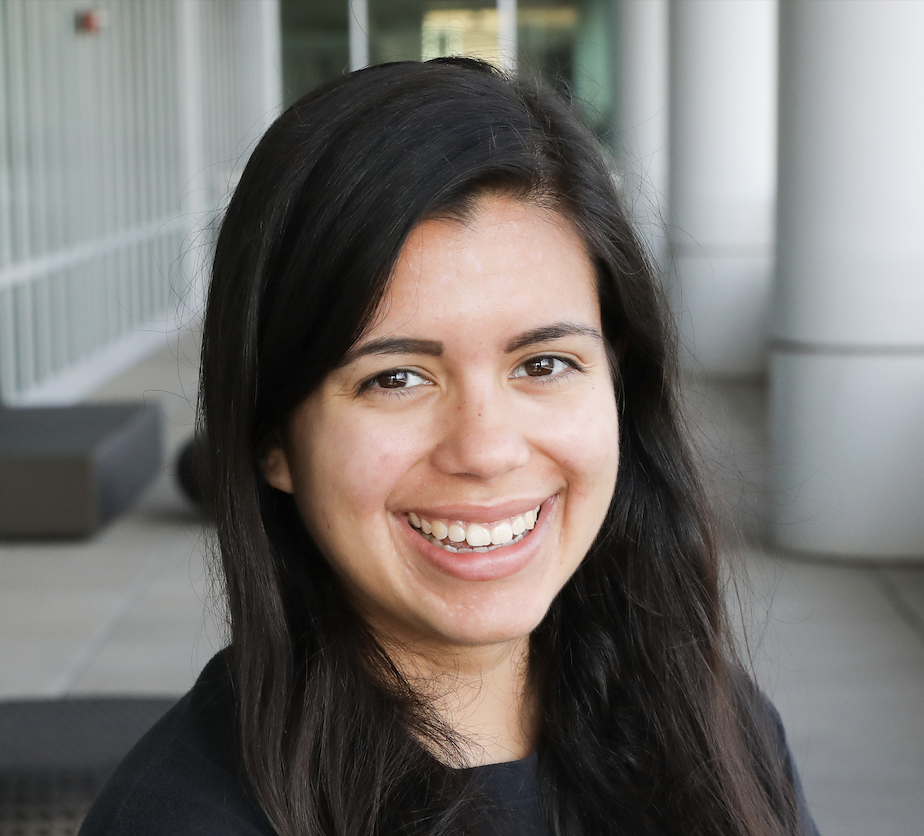We push two dining tables together to make room for all of the family members and Abuelita’s tamales. It’s rare that representatives of the Indian, Colombian, and American families can be together in the same room, but it is one of the few positive side effects of the global pandemic. Since COVID-19 led to stressful situations in both India and Colombia, family members from both places have come to the United States for respite. As we carefully clip away the edges of banana leaf wrappings and indelicately stuff our faces with tamal filling, the storytelling begins. Our dinner table stories fill the house with laughter, because good food deserves good stories. It’s then that the ringing bells of a tornado alarm drown out the laughter in the house.
—
I’m 4 years old, and my aunt is teaching me to worship God in Spanish. The song I learned, although I don’t know who the original artist is, goes like this:
Yo le alabo de corazón
Yo le alabo con mi voz
Yo le alabo de corazón
Yo le alabo con mi voz
Y si me falta la voz
Yo le alabo con las manos
Y si me faltan las manos
Yo le alabo con los pies
Y si me faltan los pies
Yo le alabo con el alma
Y si me faltara el alma
Es que ya me fui con El.
I learn that the song is saying to praise God with my heart and my voice, but if I lose my voice, I can praise God with my hands. If I lose my hands, then I can praise God with my feet. And if I lose my feet, I can praise God with my soul. If I lose my soul, then that means I’ve gone to be with God.
—
In middle school, my aunt has come to the States from India to share about her ministry working with women in a sewing center and training people to preach God’s word. We are in a room in the house of someone from my church, and my aunt is speaking to a small group of churchgoers. She tells us, “When we train Indian people in ministry, we read the scriptures for what they are. Jesus gave his disciples the authority to perform miracles. So they return to their villages, and through faith, perform miracles, just as Jesus’s disciples did.”
—
While in high school, my aunt and uncle and cousins have come from India, and they are sitting in my living room. My uncle is leading a devotional, and he asks, “What has Jesus said to you today?”
—
I’m getting married, and one of my aunts who lives in India has flown across the world with my cousin just to be here. It’s the night of my rehearsal dinner, and people are toasting and roasting. My aunt takes the microphone, and with a serious tone says to me, “I am in an interracial marriage, and you are about to marry someone who is not entirely from your cultural background, and that can be difficult. When my marriage struggles because of this difference, we always look to the scriptures for guidance. Because God’s word transcends culture.”
—
Abuelito passed away when I was young, and my favorite memory with him is when we would pray together. We would pray, and at the end of the prayer, we would pump our hands into the air and say, “¡Amén, amén, y amén!” with big smiles on our faces.
—
I’m a junior in college, and it’s Sunday, so I’m going to my predominantly white church in North Carolina. For the first time ever, one of the worship songs is in Spanish and English. I’m stunned and overjoyed as memories of how I learned to worship collide with today’s worship. After church, a group of students gather for lunch. The subject of conversation turns to the new Spanish and English worship song. Someone pipes up and says, “People who want to sing in Spanish should go to a church that speaks their language; they shouldn’t be here.” Most people at the table agree verbally; the rest agree with their silence.
—
After the tornado alarms go off, the whole room is in a flurry. After seeing the tornado watch we had made an exit plan, and now we know we need to move to the shelter. We huddle into cars, drive to the building down the street, and file into the hallways of the shelter’s basement. The tornado passes us and instead plows through a nearby town. We decide to wait for the thunder and rain to subside, so we sit in the lobby of the building, telling stories, munching on the brownies that I remembered to bring in our quick departure.
—
I can’t tell you exactly when I began to decolonize my faith. I’m not an expert on the process, I don’t have a methodology, and I can’t tell you what the results are yet. But I can give you my stories. My stories are of vibrant faith and worship and family. Growing up in the United States, I was told to accept Jesus into my heart, to learn my theology, and, in university, to know my understanding of truth. Here, we often spend time with our friends and acquaintances talking in terms of information and accomplishments. Unfortunately, this is how our Christianity often presents itself, and many see it as the only way to live a correct faith journey. My multicultural family has taught me differently. I’m discovering that decolonizing my faith means remembering the stories of my family’s faith, and owning and telling those stories. Sure, there are individual elements of my faith that I must understand and make part of my relationship with God. But I encounter Jesus more powerfully in the stories around the dinner table (tamales optional, but much preferred), seeing Jesus’s work through the new believers in India, praising Jesus with my hands, my feet, my heart, my soul, declaring, without reserve, an “amén!” at the end of a prayer, and listening to what Jesus, through the Holy Spirit, is telling us today.
My challenge to you is this. Learn your faith story, and the faith stories of those you love. Learn the stories Jesus told. Speak those stories to others, both the beautiful stories and the stories that hurt. When people try to write you out of God’s story, don’t let them. Tell your stories until your lungs and body give out, and by then your soul will be with God.
¡Amén, amén, y amén!

Abigail Ojeda. An English major at heart, a marketing specialist professionally, and a lifelong churchgoer by choice, Abigail is constantly analyzing and coming to terms with what she believes as a Christian. Her unique experience as a woman and minority growing up in Southern, majority white congregations informs her writing and her vision that churches should serve people in healthy and equitable ways.
Twitter: @abigailmojeda
This entry is part of our blog series “Rooted: Elders, Ancestors, and Collective Memory”. As BIPOC communities, our faith has been deeply formed by the experiences of our people. Our communities have developed ways of knowing and understanding God through suffering, lament, joy, and hope. Our stories, narratives, and faith practices developed over generations are rooted in context, cultural values, and the struggle for justice. Let’s learn from one another and develop a collective memory that leads to a prophetic imagination.
The views and opinions expressed on the Chasing Justice Blog are those of the authors and do not necessarily reflect the official policy or position of Chasing Justice. Any content provided by our bloggers or authors are of their opinion and are not intended to malign any religion, ethnic group, club, organization, company, individual or anyone or anything.








Thanks Abby.